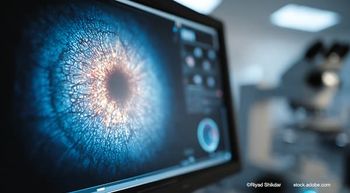
Perioperative allergic conjunctivitis increases the speed of lymphatic ingrowth
The natural immunity to allogeneic corneal tissue is stronger in allergic conjunctivitis and is linked to lymphatic ingrowth.
An investigation featured in the British Journal of Ophthalmology has demonstrated that the natural immunity to allogeneic corneal tissue is stronger in allergic conjunctivitis and is linked to lymphatic ingrowth.
A team led by Dr T. H. Flynn, Department of Ocular Immunology, UCL Institute of Ophthalmology, London, UK, transplanted allogeneic fully MHC-mismatched C57Bl/6 strain donor corneas into naïve A/J mice and A/J mice suffering from active allergic conjunctivitis. Other groups of mice with allergic conjunctivitis were postoperatively administered topical dexamethasone 0.1% twice daily or phosphate-buffered saline.
On day 2 and day 6 the mice were killed and the corneas were examined. This was completed by fluorescent immunohistochemistry using anti-CD11b, anti-F4/80 and anti-Gr-1 antibodies or whole-mount staining with anti-LYVE-1 antibody. The amount of cells infiltrating the cornea and lymphatic ingrowth were compared between the groups.
At day 2 the results presented a significantly high amount of CD11b+ cells and LYVE-1+ vessels in the host cornea. However, there were no differences in naïve and allergic mice in day 6. Topical dexamethasone prevents lymphatic growth and could be a mechanism for topical steroid enhancing graft survival.
Newsletter
Get the essential updates shaping the future of pharma manufacturing and compliance—subscribe today to Pharmaceutical Technology and never miss a breakthrough.




























